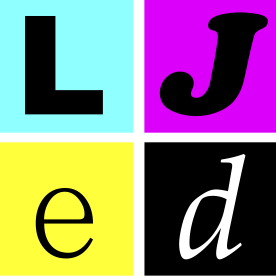 In November 2015, after twenty years of thinking with varying degrees of conviction that I needed to do it, I stopped drinking. It remains one of the best things I’ve done, but in the months and years since, I’ve still sometimes played a game with myself: “Would I have a drink if … ?”
In November 2015, after twenty years of thinking with varying degrees of conviction that I needed to do it, I stopped drinking. It remains one of the best things I’ve done, but in the months and years since, I’ve still sometimes played a game with myself: “Would I have a drink if … ?”
I’ve been asking myself that question a lot in the past couple of weeks, especially when I found myself queuing for ten minutes in the booze aisle in Tesco, in hastily demarcated boxes on the floor designed to promote social distancing as we waited for the checkout. I looked at the bottles of whisky I was standing beside – yes, there were still some left – and imagined the smell, the taste, the burn, the escape. Whisky was never really a particular favourite of mine, but then needs must, right?
So, back to my game. Would I have a drink if, pretty much overnight, the world changed? So far, it turns out I wouldn’t, and I’m glad of that. Would I have a drink if my business, in its current form, collapsed? No, because I’d want to keep a clear head. Would I have a drink if (when) death makes itself more personally evident? I hope not; I don’t know. Would I have a drink if death were coming for me? Possibly, if I had the chance, but that is a very big if. It’s a strange time to be an alcoholic who doesn’t drink any more. But then it’s a strange time to be almost anyone, right now.
We must hold a lot of things in our heads, and that requires a degree of mental trickery. We’re trying to keep up with and make sense of events on a global scale, like nothing we’ve seen. At the same time, we’re also wrestling with ink-hungry printers, and broadband connections, and Zoom calls, and competition from parents who seem born to be teachers and don’t have to try and get on with work at the same time, and loss of work, and mass fitness regimes (no, I haven’t done Joe Wicks yet, as it happens, but I’m considering it) as we attempt to construct an entirely new reality within the same four walls we’ve always been looking at. We’re counting the number of times we leave the house, and it doesn’t even seem that weird any more. It’s been mere days.
Maybe it helps to focus on the little things, as they let the big things, the things it’s almost unbearable to think about, merge into a background blur. That won’t always be possible. Sometimes I drop my guard and let my mind run, extrapolating outcomes from the information I have at my disposal. Before too long, though, it becomes necessary to stop. It is too scary, too depressing. My thoughts shut down.
Since the crisis really hit here, of course the weather has been glorious, after a long and dismal winter. Every night, Venus glows out of a clear sky above the derelict pub next door (which is currently a building site, on which work has slowed to a trickle but not yet quite stopped). Every morning, the sun comes up over the church and the theatre opposite, and each dawn is more perfect than the last. This could all be an extra source of pain – how I long for the sea! – but I’m taking from it what I can, which is extra light, flooding the house with hope. My partner wakes and listens to the birds for daily solace. “They must be wondering what’s going on!” he says. “They’re talking about us,” I tell him. “It’s bird news. It’s Twitter.” (You see, I get there in the end.)
My daily exercise is currently a walk, often past the shut-up shops of central Wells. How many of them will open again, in times to come? Many were already struggling with high rents and the internet. My daughter comments that it’s like the set of a movie, and wonders if she is on camera. “Who would be filming you?” I ask. “There’s nobody about. And would you behave any differently if they were?” She smiles, and keeps walking. When I walk with both children their happy voices ring out in the empty streets. Brash, callous, relentlessly cheerful. I feel I should urge them to be quiet; it seems disrespectful to be so unconcerned by the shattered world. But perhaps they’re only doing what we’re all having to do. Look at it, and not look at it, because it is too much.
 Liz Jones has worked as an editor in the publishing industry since 1998, and freelance since 2008. She’s not had a drink yet.
Liz Jones has worked as an editor in the publishing industry since 1998, and freelance since 2008. She’s not had a drink yet.
